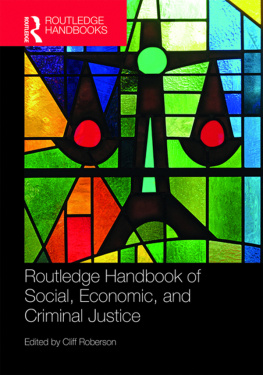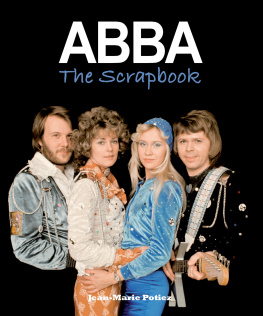By the same author
La Voie de lhumanit, Livre 2 (2011)
Considrations philosophiques sur les enjeux politiques et
culturels
[The Way for Mankind, Book Two:
Philosophical Reflections on Political and Cultural Issues]
La Voie de lhumanit, Livre 3 (2020)
La spiritualit est notre voie dvolution
www.lavoienaturelle.com
Translated from the original French by Lucy Lyall-Grant
Acknowledgments
We would like to express our gratitude to all the authors directly
or indirectly quoted in this book, in particular Anup Shah, Betsy
Bowman and Bob Stone, Frank Brunner, Fritjof Capra, Paul
Hawken, John Ikerd, Mila Kahlon, David Loy, Ethan Miller,
and Venerable Payutto.
Their points of view help us understand the world.
Thanks, too, to Jacqueline Enjalbert for her illustrations.
Foreword
In the times we live in, most of us must seriously be wondering about the way the human race is going. We are faced with a mound of major problems for which we seem to have no solution, and there seems to be no articulated or agreed idea for defining our way forward, as though we were steadily and resolutely moving towards our goal, without having any goal whatsoever.
The following pages express the bewilderment and the reflections of the common man; not an expert, and not someone who is ever consulted. Nevertheless, the ordinary man thinks, gathers information and listens to many different points of view because he would very much like to understand, and shape his own destiny accordingly. Let us enter his thoughts, follow them and develop them, for they are your thoughts our thoughts and we may be surprised at how similar our ideas turn out to be. The thoughts expressed here come from all kinds of different horizons and are addressed to every person living on this Earth. But we will have to be brave to go all the way, for the road ahead is arduous.
Lets take a look at where we stand now, tracing the thoughts of those who have been observing the worlds problems.
First of all, in this volume, lets examine the situation in economic and social terms.
What do we see?
1. A Quick Glance at the Planet
Lets look at Mumbai. Here are a few details from an article in Le Monde Diplomatique : Indias City of Gold. ()
Many slum dwellers have built two or three lofts atop their hovels and rented them out. On average 10 people live in a single hut of about nine square meters. No one can estimate how many people live on Reay Road, but every single day the headcount increases and with it the chaos. To be honest, no one can even confirm how many people live in the city overall. Official surveys show that there are 12 million (more than Greece) and that half of them are homeless. But because of the endless stream of immigrants, the slum population, the hundreds of unregistered children born every day, it may be closer to 16 million []
Many have come from far to settle in the City of Hope, convinced they would find jobs [] So they survive here, on the road, day after day, despite the pollution, heat, malnutrition, dirt, trucks and cars whizzing by, accidents, diseases, huge rats and crows, stinking gutters, the disgust of better-off passers-by and the monsoon floods []
It takes a while to realize why it continues to attract so many outsiders who hope to make their fortunes here. It is overwhelmingly huge, hot, cramped, polluted, suffocating, crowded, traffic-choked, with appalling sights and smells of poverty and sickness. If you are poor, you live in inhuman conditions; if you are rich, the mafia bothers you. If you are middle-class, just leaving your house every morning is a struggle fighting with traffic, negotiating potholes, trying to ignore tiny begging hands scratching your car windows.
This account could equally well describe hundreds of cities around the world. It is evidence of the sorry state of our planet.
We are regularly kept abreast of the general state of the world. Here are a few examples from websites keeping an eye on the worlds problems there are many sources of information at our disposal. Most of the figures quoted in this chapter come from the Global Issues website (), which offers a very thorough analysis of the social, economic and political problems affecting our planet. Here is a brief rundown of the overall situation, a reality far easier to contemplate when its reduced to statistics:
Two billion people suffer from malnutrition, and 18 million starve to death every year.
Millions of people die each year from curable or preventable diseases.
1.3 billion people have no access to drinking water; 3 billion have no sanitation and 2 billion do not have electricity.
Poverty, hunger, malnutrition, disease, appalling sanitation and illiteracy haunt a large proportion of the worlds population. We could flesh out the description of this world of ours by mentioning child labor (25 million children are exploited in unacceptable working conditions), the terrible conditions for many women and the lack of respect for basic human rights.
It would be interesting to try and understand how we have managed to make such a mess of our existence and our dignity.
We human beings are real idiots.
The genesis of this global tragedy is largely the result of clashes between cultures. Over the last few centuries, Europes aggressive, mercantile cultures came into contact with peaceful subsistence economies. As we all know, these encounters were not harmonious you only have to think about Conquistadors seizing gold, land, souls and people in the newly discovered Indies, or the slave trade the buying and selling of human ebony. Cultural differences were too great to give rise to fair exchanges.
The tragedy of under-development appears to stem from those historical exchanges. Colonialism opened up vast territories that were exploited by rich countries. The colonized peoples found themselves in a state of economic inferiority, and they have remained in that state ever since.
Following the end of colonialism, strategic aspects of world trade have remained under the control of the dominant powers, notably thanks to gaining the allegiance of local elites.
It is the rich who decide upon trade regulations, shape international institutions and control information, and these trade advantages enable them to exploit resources for their own benefit, depriving the producing countries of their fare share.
Conditions imposed by international institutions upon poor countries maintain their dependence and under-development, as they favor trade which does not benefit the poorer countries.
Poor nations can no longer produce their own food and do not have the means to develop their own industries.
Free trade does not equal fair trade. Wealth continues to be transferred from poor countries to rich countries, and the weakest countries are forced to accept unfair deals.
Whats more, rich countries know how to protect themselves from imports which could harm their economies.









![St. Jean-Marie Baptiste Vianney - The Little Catechism of the Cure of Ars (with Supplemental Reading: Confession: Its Fruitful Practice) [Illustrated]](/uploads/posts/book/270052/thumbs/st-jean-marie-baptiste-vianney-the-little.jpg)
